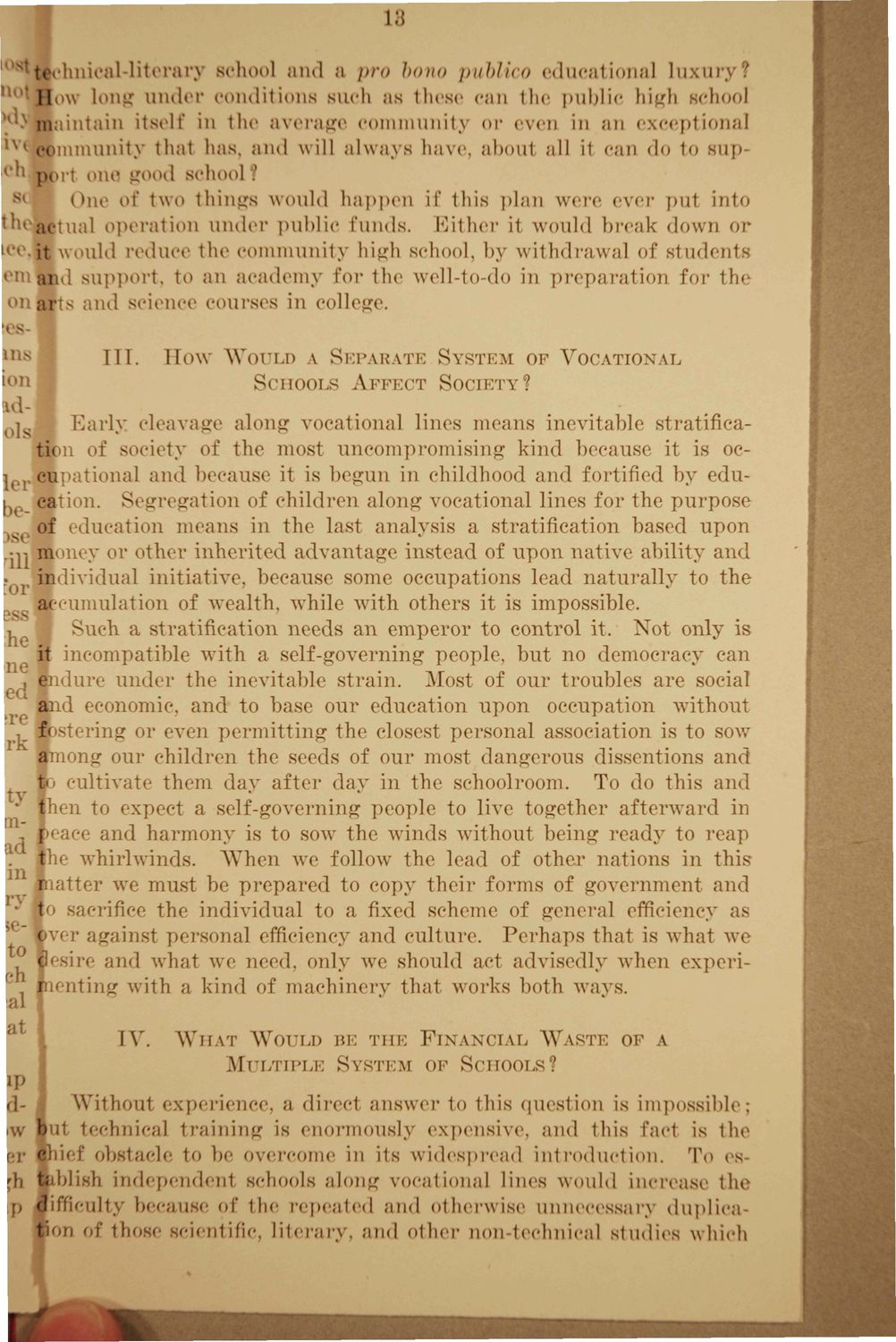Caption: Booklet - What is Involved in a Vocational Education (Davenport) (1915)
This is a reduced-resolution page image for fast online browsing.

EXTRACTED TEXT FROM PAGE:
i;i >s n ttechnical-literary school and a pro bono publico educational luxury ° ' How long u n d e r conditions such as these can the pnhlic high school '> m a i n t a i n itself in the average c o m m u n i t y or even in an exceptional IVl community that has, and will always have, about all it can do to sup- A 'b port one good school ? One o( two t h i n g s WOUld h a p p e n if this plan were ever put into th actual operation under public funds. Either it would break down or it would reduce the community high school, by withdrawal of students in and support, to an academy for the well-to-do in preparation for the on arts and science courses in college. • » > uis« >n Btd 0]s ]\\ i| ( ,\v WOULD \ SKIWKATK SVSTKM OF VOCATIONAL SCHOOLS AFFECT SOCIETY? Early cleavage along vocational lines means inevitable stratification of society of the most uncompromising kind because it is ocl e r c u P ational and because it is begun in childhood and fortified by edui,n cation. Segregation of children along vocational lines for the purpose of education means in the last analysis a stratification based upon •jj m ney or other inherited advantage instead of upon native ability and < • individual initiative, because some occupations lead naturally to the accumulation of wealth, while with others it is impossible. k i Such a stratification needs an emperor to control it. Not only is ne it incompatible with a self-governing people, but no democracy can endure under the inevitable strain. Most of our troubles are social d and economic, and to base our education upon occupation without re 'V fcstering or even permitting the closest personal association is to sow among our children the seeds of our most dangerous dissentions and to cultivate them day after day in the schoolroom. To do this and • then to expect a self-governing people to live together afterward in , peace and harmony is to sow the winds without being ready to reap & act • the whirlwinds. When we follow the lead of other nations in this in latter we must be prepared to copy their forms of government and o sacrifice the individual to a fixed scheme of general efficiency as vcr against personal efficiency and culture. Perhaps that is what we f s rf a n ( *h l ' ' * l what we need, only we should act advisedly when experi' menting with a kind of machinery that works both ways. . . . f al at I I 1 [V. WHAT WOULD BE THE FINANCIAL WASTE OF A IP I d- J Without experience, a direct answer to this question is impossible; » but technical training is enormously expensive, and this fact is the w r chief obstacle to be overcome in ils widespread i n t r o d u c t i o n . To es- Mui/ni'LK SYSTEM OF SCHOOLS? rh tabligh independent schools along vocational lines would increase tIn p difficulty because of the repeated and otherwise unnecessary duplication of those scientific, literary, and Other non-technical studies which
|